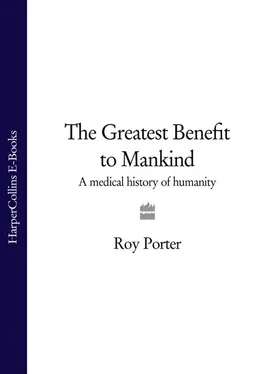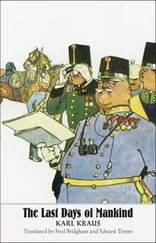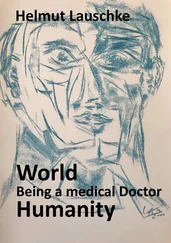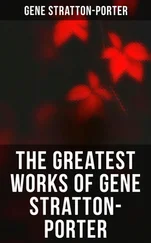Bloody-mindedness aside, Paracelsus’s significance lay in pioneering a natural philosophy based on chemical principles. Salt, sulphur and mercury were for him the primary substances. These did not completely replace the Aristotelian – Galenic system of qualities, elements and humours, but he considered them superior because they were in alchemical terminology ‘male’ – that is active and spiritual – whereas the elements were ‘female’ and passive. His ‘tria prima’ are to be understood not as material substances but as principles: solidity or consistency were represented by salt; inflammability or combustibility by sulphur; and spirituousness or volatility by mercury. Drawing on the occult, he associated diseases with the spirits of particular minerals and metals: ‘When you see erysipelas, say there is vitriol. When you see cancer, say there is colcothar’ (peroxide of iron). But he also boldly deployed metals and minerals – mercury, antimony (stibium), iron, arsenic, lead, copper and sulphur – for therapeutic purposes, together with laudanum (tincture of opium).
Embodying spiritual and vital forces, Paracelsus’s chemical principles explained living processes. These depended upon what he called archei, the internal living properties controlling processes like digestion; and also semina or seeds deriving from God, the great magus (magician) who orchestrated nature. The agents of disease, on the other hand, might be poisonous emanations from the stars or minerals from the earth, especially salts. His belief that there were as ‘many diseases as pears, apples, nuts’, and that each disease had a specific external cause sounds like an anticipation of ontological doctrines, but it must be remembered that he saw the essence of disease as spiritual.
Paracelsus ridiculed hidebound practices. Sickness was to be understood not by conventional urine inspection (uroscopy) but by chemical analysis using distillation and coagulation tests. He also enjoyed mocking innovations championed by others. Dissection, for instance, was worthless ‘dead anatomy’, for it could not reveal how the living body functioned. He died before Vesalius published his Fabrica, but he would probably have deemed it not worth a sausage. True physiology had to discover the nourishment each body part needed, while to fathom pathology stellar influences had to be probed and the presence of abnormal quantities of salt, sulphur and mercury tested. By disparaging humoral balance and stressing the prime role of particular organs in health and disease, he countered Galenist constitutionalism with a new notion of specificity and a pathology of disease as invasion from outside. *
He interpreted familiar diseases in new ways. Take gout, regarded by Hippocratic medicine as a classic humoral imbalance involving defluxion into the foot (‘gutta’ means ‘flowing’). Paracelsus read gout not constitutionally but chemically, seeing it in terms of the wider category of ‘tartaric disease’ (diseases of incrustations). In De morbis tartareis (1531) [On Diseases of Tartar], he proposed that some local external factor, such as water supply, might produce the characteristic chemical deposits in the joints. He boasted patriotically that in Switzerland, ‘the most healthy land, superior to Germany, Italy and France, nay all Western and Eastern Europe, there is no gout, no colic, no rheumatism and no stone’. Gouty nodules, he maintained, consisted of calcined synovia or an excremental salt (tartar) coagulated in a joint. Since the tartar coating wine casks was a product of fermentation, such material could be compared to bodily deposits like gallstones, kidney stones, and the dental incrustations still known as tartar. Bodily tartar was thus derived from food and released through digestion. In some individuals it failed to be excreted, tending instead to be transformed by ‘spirit of salt’ into stony substances like calculi or gouty tophi. This theory of ‘tartarous disease’ was one of the earliest attempts to advance a chemical aetiology for a malady.
Paracelsus sneered at bookworms (‘not even a dog-killer can learn his trade from books’), and his copious writings taught that truth was to be found not in libraries but in the Book of Nature, and issued a health warning: ‘the more learned, the more perverted’. Personal experience was what counted – ‘he who would explore nature must tread her books with his feet.’
However ambivalent such views – Paracelsus was the classic dogmatic anti-dogmatist, the humble chap convinced everyone else was wrong, the inveterate scribbler who told readers to close their books – his commitment to the discovery of truth through observation and experiment was a breath of fresh air. And it became the inspiration of the new medicine emerging in the ‘scientific revolution’ stirring at about the time of his death: 1543 brought not just Vesalius’s De fabrica but also Copernicus’s De revolutionibus orbium coelestium [On the Revolutions of the Heavenly Spheres] with its revolutionary heliocentric astronomy.
Few of Paracelsus’s medical writings were published before his death in 1542, but by the 1550s they were spreading in a blaze of controversy. His followers made an odd bunch. His writings appealed, as would be expected, to radical reformers, such as the Danish Lutheran Peter Severinus, whose Idea medicinae philosophicae (1571) [The Idea of Philosophical Medicine] mocked Galenism, and in true Paracelsan fashion told readers to burn their books (though presumably not the Idea !), sell their houses and go on their travels, studying plants and learning from peasants. But his teachings also found favour in more select circles.
Cold-shouldered by universities, followers sought friends in high places; princely patronage would give Paracelsanism its imprimatur, while royal largesse could equip the laboratories chemical medicine required. In any case, many Renaissance rulers had intellectual aspirations of their own. The elector of the palatinate, Otto Heinrich Duke of Neuburg, was probably the first German noble to favour Paracelsans, and they also found support alongside the astrologers and magicians at the Prague court of the mystically-minded Holy Roman emperor, Rudolf II.
Конец ознакомительного фрагмента.
Текст предоставлен ООО «ЛитРес».
Прочитайте эту книгу целиком, купив полную легальную версию на ЛитРес.
Безопасно оплатить книгу можно банковской картой Visa, MasterCard, Maestro, со счета мобильного телефона, с платежного терминала, в салоне МТС или Связной, через PayPal, WebMoney, Яндекс.Деньги, QIWI Кошелек, бонусными картами или другим удобным Вам способом.












